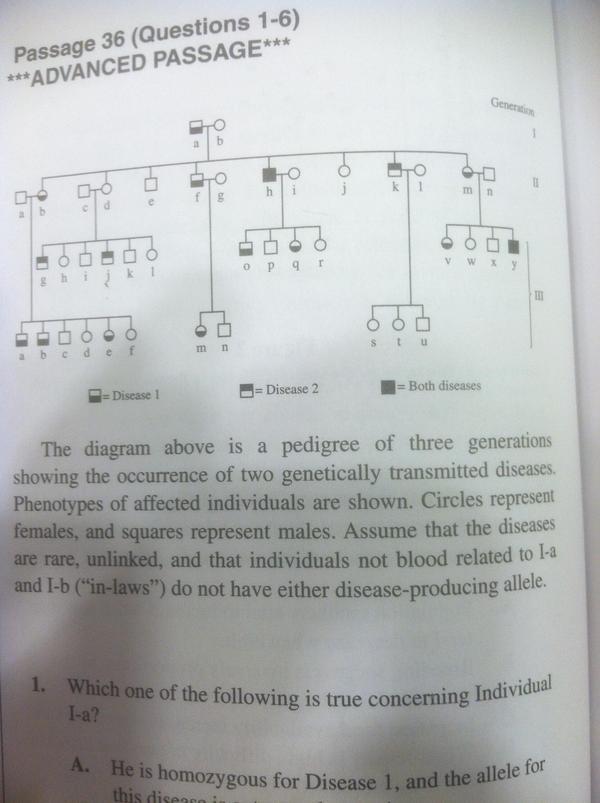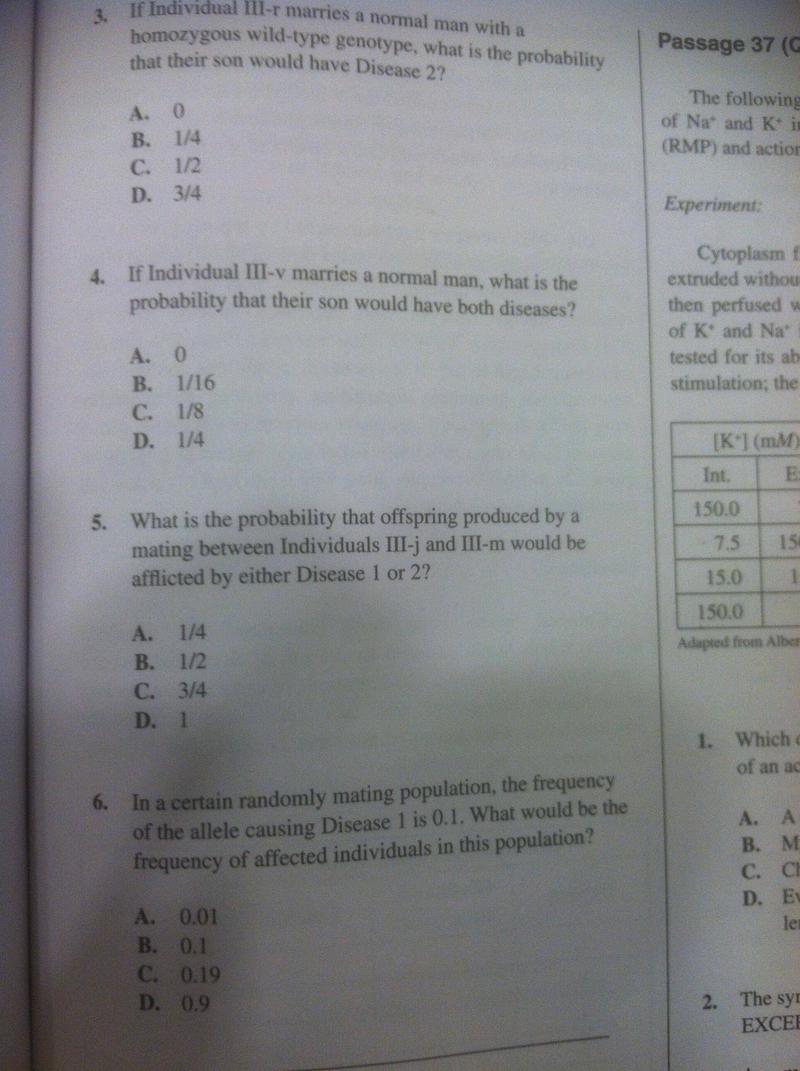- Joined
- Dec 25, 2010
- Messages
- 2,338
- Reaction score
- 17
When a passage is given to you and it includes a pedigree and it asks you what the probability of family member X having a certain genotype is, is there a quick way to calculate the probability? I spend an inappropriate amount of time trying to make punnet squares and I know there has to be a faster way around it?
also, what about when it asks you what the genotype of a certain individual is? are there shortcuts for these types of questions? I'm not referring to any one passage or question in particular but if needed I guess I could find one from one of my books.
also, what about when it asks you what the genotype of a certain individual is? are there shortcuts for these types of questions? I'm not referring to any one passage or question in particular but if needed I guess I could find one from one of my books.



